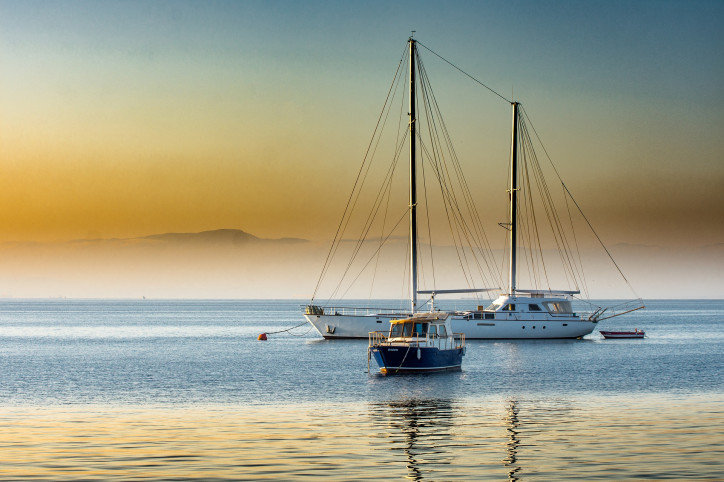Boating can be quite a rewarding and exciting hobby, it allows you to engage in a thrilling experience that keeps you engaged and recreated. It has become for many a preferred pastime, and if you’ve been considering lately to give this idea a go for yourself, you might be wondering what steps you need to take here. Because this isn’t your average hobby, without preparing yourself properly, you can end up being intimidated by the waters, and not enjoy sailing as much as you’d expected.

It’s perfectly understandable to feel apprehensive when you’re on the point of sailing a boat for the first time, but what you need to remember here is that with the right approach, you can get the hand of boating quite fast. Before you actually take over the controls of a boat, you should be aware of some essential tips. Here’s what you need to do to prepare yourself for your future sailing adventures:
Start with proper training
Training is what should come first. As many articles as you might have read online and as much technical insights as you’ve actually acquired, getting trained by a professional is still necessary. This isn’t an exercise you can immediately learn just by jumping on a boat and taking off, so you should understand that importance of appropriate training.
You’ll find plenty of great courses designed for beginner boaters, where an instructor shows you the basics of sailing and helps you obtain a better perspective on things. You may even have an establishment availed in your area, and if you don’t you can always look online for course opportunities. The right training program will give you access to great vessels as well, which will help you with your own boat purchase if you aren’t a boat owner yet.
During proper training, all the essentials will be presented to you, starting with terminology and up to anchoring, downwind sailing and other special skills. As you can also see at boatsafe.com, there are a few important boating basics that need to be learned, and only an experienced instructor can make things easier for you here.

Obtain a license
For some sailing adventures, you will be required to hold some paperwork. It’s important to do your research and obtain a license if the type of boating you’ll be doing requires you to. Registration demands can vary, depending on the local boating authority you need to get in contact with. Different conditions exist for boats used on waterways, canals and rivers. Boats used for cruising aren’t the same as houseboats. Don’t hop on your boat before you’ve actually discussed with someone who knows a thing or two about your local navigation authority and registration procedures. As long as you’ve covered the necessary sailing arrangements, you won’t have to feat a potential fine or legal charge.
Get acquainted with different useful gadgets
Safety is probably your main concern when it comes to driving a boat, and that’s the way it should be. It’s important to acknowledge all the risks and to take the necessary means of precaution to prevent yourself from dealing with unpleasant scenarios. There are a few gadgets you’ll need, which will make sailing both safer and easier.
With today’s technology, you can access some advanced navigation tools, starting with magnetic compasses and up to GPS receivers and voyage data recorders. Discuss with your instructor and get your hands on the must-have devices. With an appropriate tech setup, you’ll see for yourself that boating will no longer seem scary, even if you’re just getting the hang of it.
Keep a first-aid kit on the boat
As careful as you want to be, emergency scenarios can arise when you least expect them. Boating can often become hazardous, so it’s best if you’re prepared and keep a first-aid kit at close reach. Whether you’ve fallen due to an unexpected wave and you’ve injured yourself, or you got a sunburn, until you manage to get back to shore, having something that can help you deal with potential injuries can make a big difference. All sailors have first aid supplies around, not just those new to boating.
Always check the weather forecast before boating
Even the most experienced sailors will check the skies before hopping on the boat. Driving a boat in unfavorable weather condition is far more challenging, and certainly not something beginners can handle. That’s why you are recommended to always check the weather forecast first. If there are any chances of a storm coming, things can get dangerous on the waters, so it’s best if you leave boating practice for another day.
Have a tool box around
Learn how you can tackle minor mechanical and technical issues - it will help you get out of a bad situation, such as getting stuck for hours on the water due to a minor glitch your boat has. Buy a tools box and learn how to use the essentials. Have spare parts around as well. Gaining some basic handyman knowledge can go a long way here.
Maintain a slow speed at first
You can be tempted to go full speed once you think you’ve learned how to correctly maneuver the boat, but this isn’t actually recommended if you don’t have that much experience. Losing controls of the vessel can easily happen if you’re a beginner, sailing becoming far more dangerous at higher speeds. Keeping a slow speed is even more relevant when you’re approaching the marina, or passing other vessels on the water.
These are the main things to keep in mind as a novice sailor. Besides getting the technical knowledge necessary, you also need to perfect your practical skills, that’s why you should practice frequently. Over time, all of the details mentioned here will become common sense, but until then, try to remember each one of these guidelines. If you step on the boat fully prepared and confident that you’ll handle things correctly, the odds are you’ll actually benefit from an overall pleasant experience.